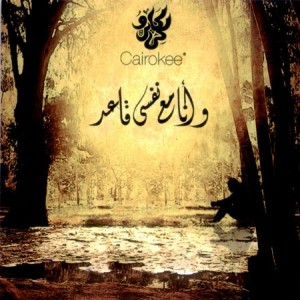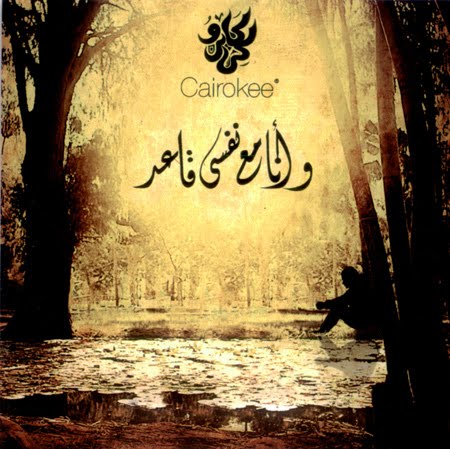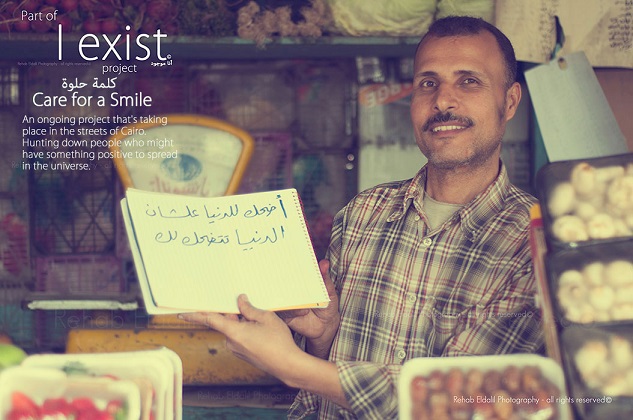 CairoKee, the popular Egyptian band released their highly anticipated album on 17 June. Well-known for their revolutionary songs – releasing a new hit directly after every major event – CairoKee gained fame and a loyal following in the wake of the January uprising. Yet, this album, Wana ma’a nafsi a’ed , [While I sat there by myself], couldn’t be farther from their political/revolutionary hits.
CairoKee, the popular Egyptian band released their highly anticipated album on 17 June. Well-known for their revolutionary songs – releasing a new hit directly after every major event – CairoKee gained fame and a loyal following in the wake of the January uprising. Yet, this album, Wana ma’a nafsi a’ed , [While I sat there by myself], couldn’t be farther from their political/revolutionary hits.
CairoKee’s songs are not the kind of tracks you love at first play – your appreciation grows in pace with the times you hear the song. At least, that is how it used to be. Unfortunately, as a whole, Wana ma’a nafsi a’ed does not live up to the reputation of the band.
The first track, Basa’al Alaiky, [I ask about you], is one of the best songs on the album. The soft rock melody, coupled with the signature eloquent guitar strums, and the soothing, romantic lyrics complement each other perfectly. It is a surprising song though, the subject matter is not common for CairoKee.
There are a few other gems among the following nine tracks, including Laken ehsasy mesh kefaya, [But my feelings are not enough], a rather dark and deep song and again very different from the band’s general style. Souty, [My voice] is an up-tempo song filled with rebellious emotions, and the title-song of the album Wana ma’a nafsi a’ed is an imaginative track, mixing bluesy music with elements from nature.
But the rest of the album is a bit disappointing. As one track follows the other the album starts to sound familiar. CairoKee has carved out a niche for their music in the saturated Egyptian music scene with their distinct and original style. However, many of the tracks on this album seem to follow this sound too closely, giving the impression that the band chose to be safe rather than creative, which might end up harming their image rather than enhancing it.
A good example is Kol youm momken yekoon bedaya, [Every day could be a new beginning], used as a promo for Coca- Cola’s latest ad. The song is eerily similar in concept and melody to the older track Meen addak, [No one compares to you].
Moreover, in general the rhythm of the lyrics and the issues they address hold no surprises. Perhaps with the exception of Law kan endi guitar, [If I had a guitar], where for the first time the lead singer uses modern standard Arabic instead of the slang, Egyptian dialect. Though refreshingly different and despite the lyrics being very expressive, the song falls flat because the pronunciation of lead vocalist’s Amir Eid is questionable to put it mildly. The track has little connection to the rest of the album that features little to no other innovative approaches.
Overall, I cannot say the album is bad. It did definitely has a few good, immediate favourites for the band’s faithful fans. CairoKee is at its best writing songs that describe the current political scene. There lies their unique voice and nobody can compare with the transparency of their music and familiarity of their lyrics.
The same cannot be said about their albums, and this latest one is no exception.



